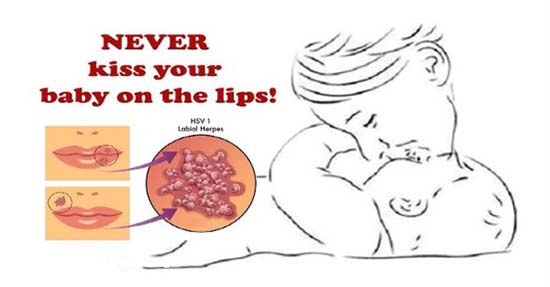
Can herpes affect my ability to have a child?
Genital herpes shouldn’t affect your ability to get pregnant, and people with herpes who get pregnant have healthy pregnancies, births, and babies all the time.
Transmitting the infection to your baby during labor and delivery is the biggest concern with genital herpes during pregnancy. But there are extra precautions you can take to make sure you don’t pass herpes on to your baby.
Unlike other STDs, herpes is not spread through blood, saliva, semen, or vaginal fluids. It is only spread via direct skin-to-skin contact. It can’t affect a man’s sperm count or ability to conceive.
If you have herpes, talk to your doctor before planning to get pregnant. You should do this even if you haven’t had symptoms ever or in a long time.
Your healthcare team can give you more information on herpes and allow you to obtain appropriate tests and follow-up care with your pregnancy. Read the following facts which every pregnant women actually need to know before pregnancy.
How does herpes affect baby
Herpes can cause neonatal herpes, which is when a baby under 28 days old is infected by herpes. It can cause eye and throat infections, damage to the central nervous system, cognitive development delays, or death. If given early, medication can prevent or reduce lasting damage. Fortunately, fewer than 1 in 10,000 newborns contracts the disease, even though genital herpes is fairly common.
How to protect your baby from herpes infection
If you’re pregnant with genital herpes, you might be concerned about spreading the infection to the baby. It’s necessary to talk with a doctor or nurse about it.

Take the following precautions to make sure you don’t pass herpes on to your baby.
Have herpes for some time prior to getting pregnant
Women who have already had genital herpes for a while before getting pregnant have a very low chance of spreading it to their baby. If you already had genital herpes before you got pregnant, you don’t need to worry as much. Your antibodies will protect the baby during pregnancy. Regardless, your doctor should know if you have genital herpes during pregnancy and your doctor may recommend taking some medicine to reduce and prevent outbreaks.
Contracting herpes while pregnant is riskiest
Women who contract genital herpes during the last few weeks of pregnancy are most likely to transmit the virus. This is because there isn’t enough time for the mom’s body to develop and share antibodies with the baby. Taking serious precautions is important because getting herpes when you’re already pregnant can lead to premature birth or even miscarriage — and the risk of problems increases the later you are in your pregnancy.
When a woman has her first encounter with herpes during any point of the pregnancy, the virus could cross the placenta and infect the baby. This causes neonatal herpes, which can be potentially fatal.
If your first outbreak occurs during late pregnancy, get a Western blot serology. This can tell you if the outbreak is a true primary, non-primary first episode or a recurrent episode. Recurrent genital herpes is only a slight risk during pregnancy.
Can herpes be passed from mother to baby in childbirth?
Women who have active herpes infections can to pass the virus on to their babies during a vaginal birth. The infant comes into contact with herpes blisters in the birth canal, which can cause them to become infected.
How to deliver a baby if you have herpes
If you were infected with herpes before your third trimester or prior to pregnancy, and you don’t have an outbreak during labor, you can try for a vaginal delivery. According to the CDC, your risk of transmitting herpes is less than one-percent. Many women with genital herpes don’t have signs of an active infection during labor so they’re able to deliver normally.
When a women has an outbreak present in the birth canal during delivery, it can be spread to the infant. When a newborn baby gets herpes it can cause certain eye problems or brain damage. The doctor will do a cesarean section to prevent the baby from coming in contact with the outbreak area .
Fortunately, it is rare to spread herpes to newborn babies. Twenty-five to thirty-percent of pregnant women have genital herpes, but less than .01% of babies born in the U.S. will contract neonatal herpes.
In order to increase your chances of a vaginal delivery, the American College of Obstetricians and Gynecologists recommend that pregnant women take antiviral medication from 36 weeks to delivery.
Is breastfeeding safe if i have herpes?
As long as you don’t have sores on your breasts, cover all other sores, and wash your hands thoroughly, breastfeeding is safe during a herpes outbreak.
If you only have sores on one breast, you can nurse with the other breast. Just clean the area thoroughly and cover the breast with dressing, taped down completely so the baby can’t come in contact with it.
With basic precautions, there is no herpes related risk in holding your baby, breastfeeding, or cosleeping.
Antiviral medications during pregnancy
According to experts, it is safe to take antiviral medications prescribed from a doctor during the third trimester until delivery. It will reduce the likelihood of having an outbreak or shedding the virus during delivery.
Can herpes be passed from mother to baby?
During the first weeks of life, herpes can be spread to a newborn baby if they are kissed by someone with an active cold sore.
Five-percent of cases of newborn herpes are contracted after birth, which is just as dangerous as contracting it during delivery. You can prevent this with simple precautions.

● Make everyone wash their hand before they touch your baby, and don’t allow anyone with a cold sore to kiss or hold your baby. Even oral herpes is dangerous for newborns. In July 2017, a newborn in Iowa contracted herpes from someone who visited her shortly after being born. The baby was kissed and died of herpes meningitis.
● Whenever possible, avoid taking your baby to crowded places for a few months after birth.
● If you have an outbreak anywhere on your body, be sure to cover it well to prevent your baby from touching it. Wash your hands very carefully and frequently, it can spread to your baby via your hands.
● You can sometimes get a herpes sore on your finger, called a herpetic whitlow. You should avoid touching a baby if you have one.
● Herpes can be spread by touch, like if someone touches an active cold sore and then touches a baby. This is why hand-washing is so important.
What to do if you don’t have herpes but your partner does
If you’re pregnant and negative but your partner have herpes, it’s really important to use condoms and dental dams anytime you have vaginal, anal, or oral sex during your pregnancy. It’s also really important to talk with a doctor or nurse about it. Your doctor may recommend that you avoid sex during your third trimester. They may also have your partner take medicine to lower the chances of them spreading herpes to you throughout your pregnancy.
For more guidance on living with herpes, see the articles:
How did I get herpes?
How to have a fulfilling sex life with herpes
The first herpes outbreak: What it's like & how long it lasts





